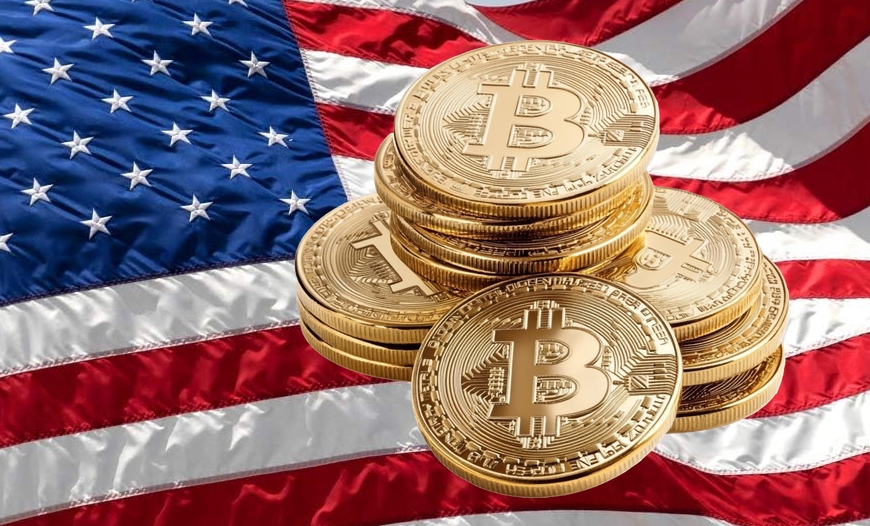Crypto Industry Donated Over $18 Million to Trump’s Inauguration New FEC Report Reveals

A newly released report from the Federal Election Commission (FEC) has uncovered that cryptocurrency companies and key industry players contributed more than $18 million to former President Donald Trump’s inauguration fund. This revelation adds deeper context to the administration’s favorable stance toward digital assets during Trump’s tenure.
Crypto Contributions Represent a Major Slice of Trump’s Inaugural Fund
According to FEC data, crypto-affiliated donors made up a significant chunk of the $245.27 million raised for Trump’s 2016 inauguration. One of the largest individual contributors was Ripple, the company behind the XRP token, which donated $4.9 million more than any other entity aside from food industry giant Pilgrim’s, which gave $5 million.
Other major players followed closely. Robinhood, the retail trading platform, contributed $2 million, while a variety of high-profile crypto firms, including Coinbase, Kraken, Crypto.com, Circle, Solana Labs, Galaxy Digital, and Ondo Finance each gave $1 million.
Additional donors included Input Output Global, the developer behind Cardano (ADA), which gave $250,000, and Yuga Labs (creator of Bored Ape NFTs) and Consensys, both of which contributed $100,000.
Notably, individual donors such as Uniswap’s CEO Hayden Adams, Multicoin Capital co-founder Kyle Samani, Paxos CEO Charles Cascarilla, and Coinbase/Paradigm co-founder Fred Ehrsam III also made substantial personal donations.
Trump’s Crypto-Positive Moves May Favor His Donors
These contributions add another layer to the broader picture of crypto’s influence on U.S. politics. Reports show that the crypto industry was among the largest financial backers of the 2024 election, pumping in $134 million via political action committees (PACs) that supported pro-crypto candidates, including Trump among them.
Critics argue that Trump’s administration may have returned the favor. According to the same FEC report, several of the crypto companies that donated to the inauguration have already seen benefits through regulatory leniency and favorable policy changes.
For example, the SEC under Trump reportedly dropped legal actions or investigations against firms like Kraken, Uniswap, Consensys, Coinbase, Ripple, and Crypto.com, all of which had contributed to the inauguration fund.
Digital Asset Endorsements Raise Eyebrows
Adding to the controversy, Trump’s administration included XRP (Ripple), SOL (Solana), and ADA (Cardano) in the so-called “Digital Assets Stockpile”, a move that drew criticism for its apparent favoritism toward tokens tied to inauguration donors.
Even crypto venture capital firms like Paradigm and Multicoin Capital, both of which supported Trump’s inauguration, were invited to the high-profile White House Crypto Summit, while organizations such as the Ethereum Foundation were reportedly left out.
Is Trump’s Crypto Agenda Self-Serving?
Critics argue that Trump’s pro-crypto policies may have served his own financial interests. A Forbes report claims that Trump’s net worth has doubled in the past year, partially due to his involvement with crypto-related ventures and the growth of Truth Social, his media platform.
Among his crypto ties are the World Liberty Financial (WLFI) DeFi project and the TRUMP memecoin, launched just before his inauguration. These projects have seen massive capital inflows, which analysts believe were influenced by Trump's association and further supported by favorable SEC guidance on memecoins and stablecoins.
Experts Warn of Risks in Deregulated Crypto Environment
Unsurprisingly, these developments have sparked growing concern among financial experts and former regulators. In a New York Times op-ed, John Reed Stark, a former SEC official, and Lee Reiners, a Duke University professor, criticized Trump’s approach to crypto oversight.
They argue that the administration has effectively halted meaningful regulation, creating a permissive environment that may increase risks for everyday investors and potentially destabilize traditional financial markets as they become more intertwined with crypto assets.















